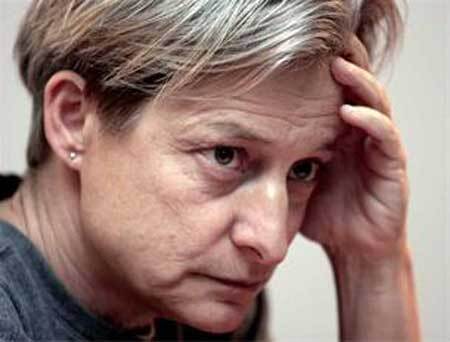Judith Butler |
Of all the non-Middle East specialists writing on the Middle East, few have been as prolific or as indecipherable as Judith Butler. More than an academic, she has become a pop culture figure. In an age of identity politics, Butler’s identity as a Marxist, feminist, lesbian practitioner of critical theory who writes prolifically about gender and transgenderism have made her among the most interviewed active college professors. But her anti-Israel advocacy has made her a star, and a possible successor to the late Edward Said, another academic whose fame rests more on tendentious scholarship and agitprop than rigorous, objective research.








